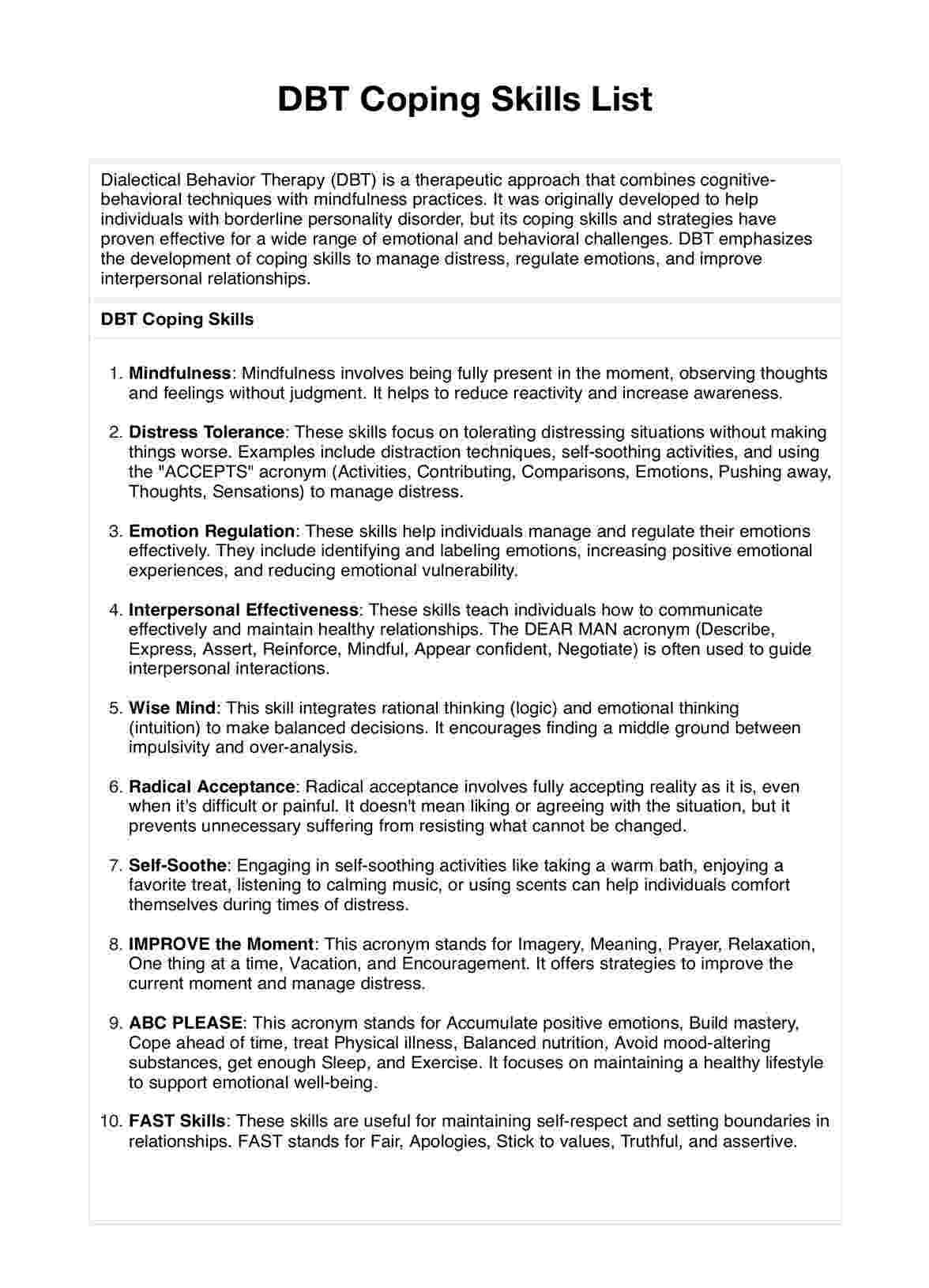Mental health professionals specializing in dialectical behavior therapy can use DBT Coping Skills List to guide clients in effectively addressing their challenges.

DBT Coping Skills List
Discover how to use Carepatron's DBT Coping Skills List template to help your clients deal with difficult situations. Download our free PDF guide today.
DBT Coping Skills List Template
Commonly asked questions
DBT Coping Skills Lists can help clients express and manage emotions, work towards resolving interpersonal conflicts, enhance awareness of their thoughts and feelings, and develop healthier problem-solving strategies.
You can use a DBT Coping Skills List as part of your overall therapeutic practice. It's especially useful when trying to help clients develop healthier coping strategies when they feel overwhelmed or emotionally dysregulated.
EHR and practice management software
Get started for free
*No credit card required
Free
$0/usd
Unlimited clients
Telehealth
1GB of storage
Client portal text
Automated billing and online payments











